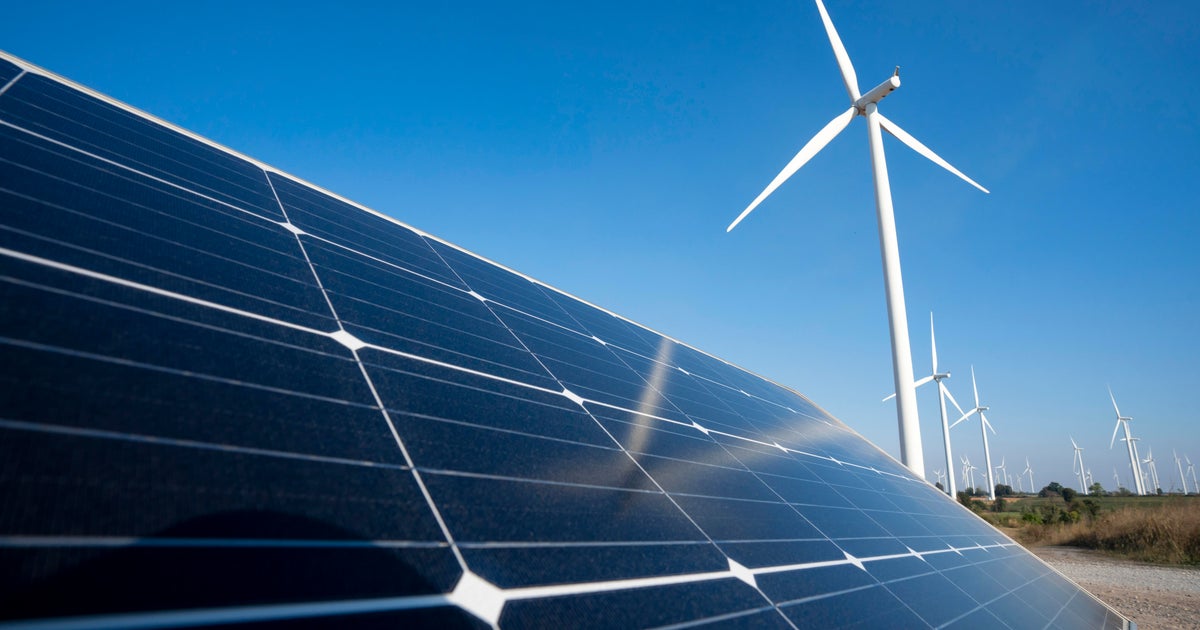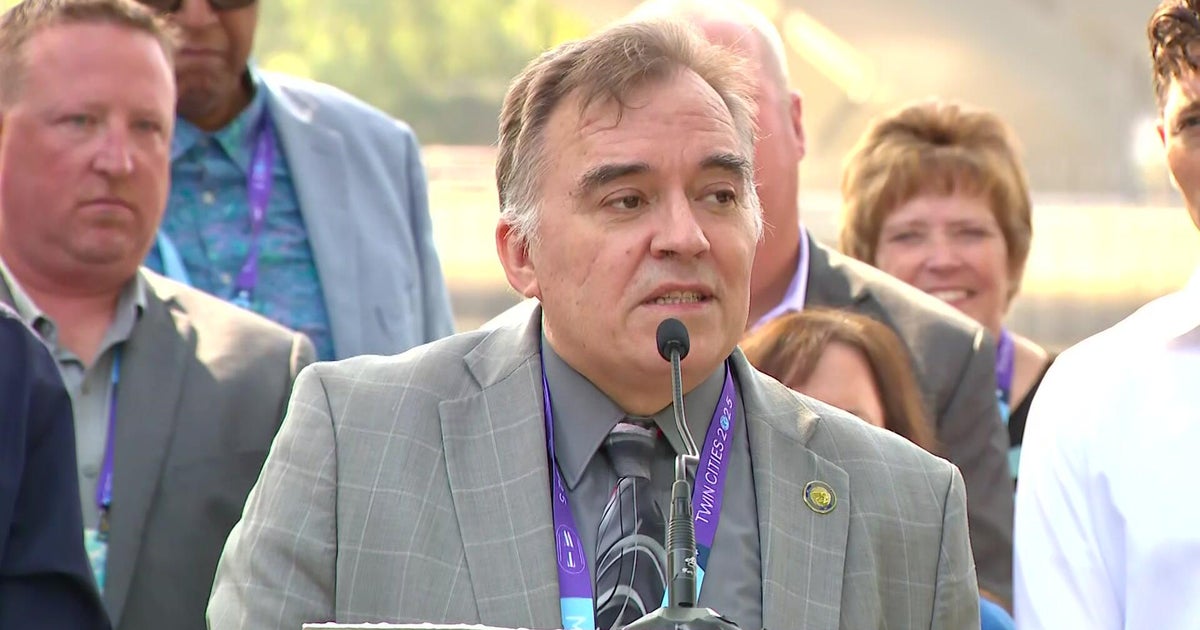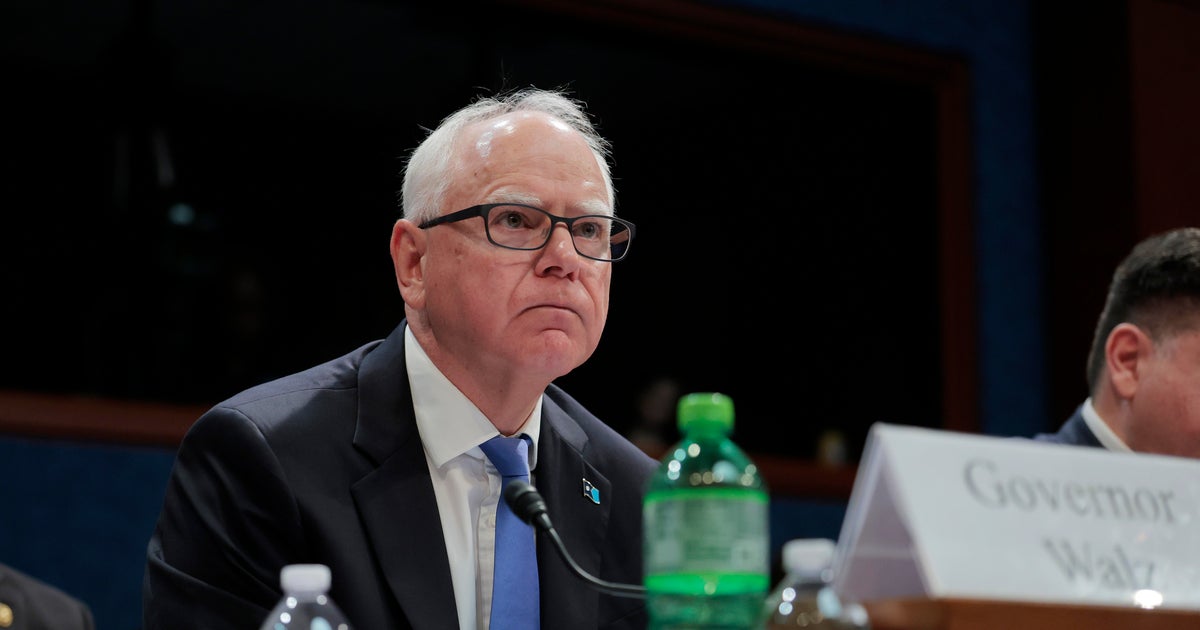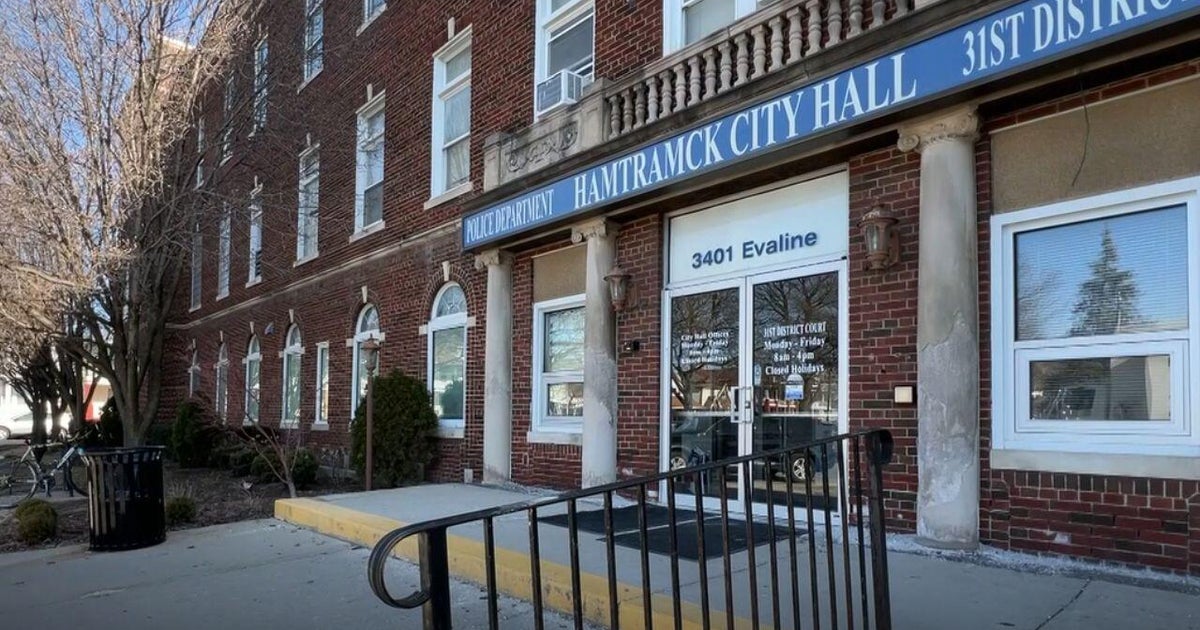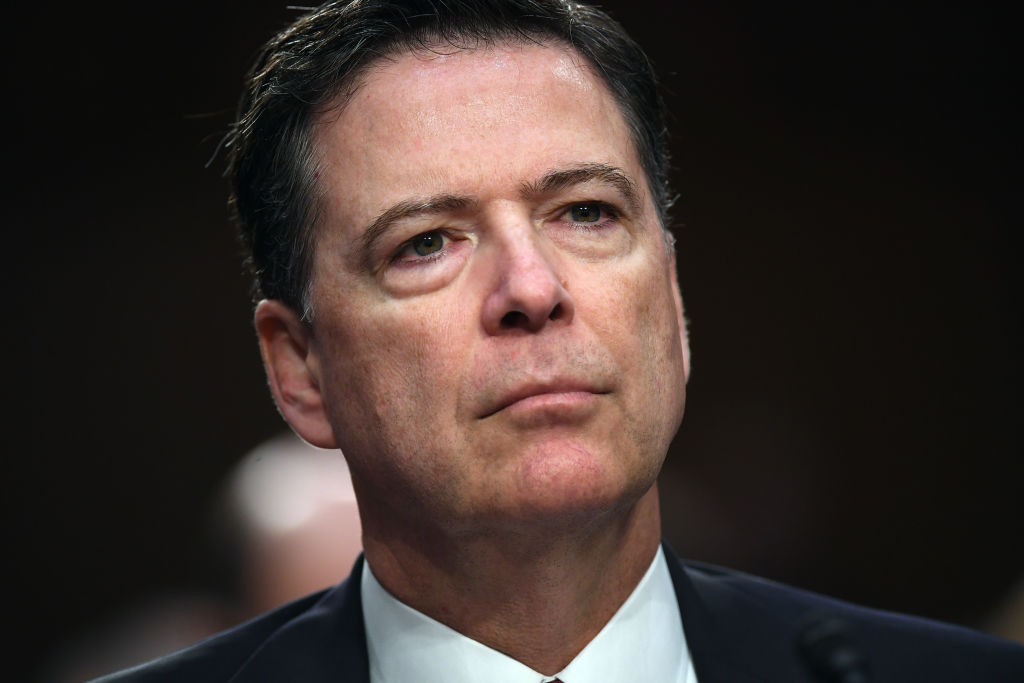James Comey testifies before Senate Intelligence Committee
Fired FBI Director James Comey told the Senate Intelligence Committee in his first public comments since his May 9 ousting that he "takes the president at his word" that he was fired because of the FBI's investigation into Russian election meddling.
Comey's testimony to the Senate Intelligence Committee lasted more than two and a half hours, was colorful, and at times shocking, expanding on written testimony from Comey released Wednesday afternoon.
Comey said the "shifting explanations" for his ouster "confused" and increasingly, "concerned" him, as the White House's official explanation for his firing contradicted that of the president's. Comey said he couldn't be sure of why the president fired him, but that he believes the president's public comments.
After firing Comey, Mr. Trump told NBC's Lester Holt he thought of the thought of "made-up" story of ties between Russia and the Trump campaign when he fired Comey, and he told Russian diplomats that firing Comey relieved "great pressure" on him from the FBI's Russia probe.
"I take the president at his word that I was fired because of the Russia investigation," Comey said in the hearing.
Comey reiterated that belief later in the hearing, adding that, "I was fired in some way to change or the endeavor was to change the way the Russia investigation was being conducted."
The White House's initial and official explanation for his firing -- that rank-and-file FBI employees lost confidence in him -- was flat-out false, Comey said.
"Those were lies, plain and simple," Comey said.
Comey said the Trump administration chose to "defame me, and more importantly, the FBI."
White House Deputy Press Secretary Sarah Huckabee Sanders, in an off-camera press briefing that took place during Comey's testimony. said the president is "not a liar."
"I can definitively say the president's not a liar," Sanders said in response to a reporter's question. "I think it's frankly insulting that that question would be asked."
But the president's trustworthiness -- or lack thereof -- was a focal point of Comey's testimony.
Comey said the president was inaccurate when on May 18, the president in a press conference denied that he ever asked Comey to drop the Flynn probe.
"I don't believe it is," Comey said, referring to whether the president's May 18 claim was accurate.
Mr. Trump, in a May 18 joint press conference with the Colombian president, denied that he ever asked Comey to drop the investigation into former National Security Adviser Michael Flynn. "No, no, next question," Mr. Trump said at the time. Comey was clear that he interpreted his conversation with the president as pressure to drop the investigation.
Comey said he was cautious in conversations with the president and documented those conversations because he was afraid the president might "lie" about them later. In one such conversation, according to Comey, the president excused Attorney General Jeff Sessions and White House adviser Jared Kushner from the room before encouraging Comey to drop his investigation into Flynn.
"I was honestly concerned that he might lie about the nature of our meeting so I felt the need to document it," Comey said.
Comey did not document conversations with the two previous presidents he served -- George W. Bush and Barack Obama.
After he was fired, Comey leaked the memo he wrote documenting the Flynn conversation to a friend, Daniel Richman, a professor at Columbia School of Law. Richman, in turn, gave the contents of the memo to a reporter at the New York Times. Comey said he leaked the memo with the hope that it would spur the appointment of a special prosecutor to oversee the Russia probe.
Comey did confirm something Mr. Trump has emphasized repeatedly -- that the president was not personally under investigation by the FBI, a point the GOP touted Thursday.
But Comey declined to comment on whether the president had any collusion with Russians during the 2016 elections, saying he did not want to discuss the topic in an open setting.
"That's a question I don't think I should answer in an open setting," Comey said.
Comey testimony as it happened
Comey declines to discuss whether Trump colluded with Russia in an open setting
Comey declined to discuss whether President Trump colluded with Russia during the 2016 election in an open setting.
"That's a question I don't think I should answer in an open setting," Comey said.
Comey did tell Mr. Trump he was not the subject of an investigation, so that line from Comey gained immediate attention on social media. The Senate Intelligence Committee will have a closed session following the open session, in which Comey is expected to discuss more sensitive and classified information with the committee members.
"I don't know" if Trump's words will rise to obstruction of justice: Comey
Comey, asked if the president's interactions with him will meet the standards of obstruction of justice, said he did not know.
"I don't know," Comey said, adding that is up to Robert Mueller, special prosecutor selected to oversee the Russia probe.
Comey has been careful not to draw legal conclusions in his testimony, mostly sticking with his experience while at the FBI.
"Release all the tapes" of conversations with Trump: Comey
Comey expressed hope that there are tapes of his conversations with President Trump, as Mr. Trump referenced in a tweet the day after firing Comey. Mr. Trump said Comey had better hope there aren't tapes.
"Release all the tapes," Comey said. "I'm good with it."
The White House has declined to say whether such tapes exist, or whether Mr. Trump regularly records conversations with people.
Comey agrees Trump was inaccurate when he denied requesting to drop the Flynn probe
Comey said President Trump was not accurate when he on May 18 denied ever asking Comey to back off on the FBI investigation into former National Security Adviser Michael Flynn.
"I don't believe it is," Comey said, referring to the accuracy of the president's statement.
Mr. Trump, in a May 18 joint press conference with the Colombian president, flat out denied that he ever asked Comey to drop the investigation into Flynn, as the media recently had reported at the time. "No, no, next question," Mr. Trump said at the time.
This is how the Comey memo leaked
Comey said he told a "close friend" of his -- a professor at Columbia law school -- to share the "content" of his memo with a member of the media. This was the memo memorializing his February 14 conversation with the president, in which Mr. Trump asked him to let the investigation into former National Security Adviser Michael Flynn go.
Comey said he hoped the leaking of the memo's contents would prompt the selection of a special prosecutor to oversee the FBI's Russia probe.
Comey said he felt it was "very important" to get that content out to the public.
Comey says he can't share "problematic" reason behind Sessions' recusal
Comey said there is a reason why Attorney General Jeff Sessions recused himself from the FBI's Russia investigation, but he can't discuss the meeting in an open setting. The reason is "problematic," but can't be discussed in public, Comey said.
Sessions recused himself from the Russia probe earlier this year, leaving it in the hands of Deputy Attorney General Rod Rosenstein. Rosenstein also ultimately recused himself, appointing a special counsel -- former FBI Director Robert Mueller -- to lead the probe.
Comey indicated he may share more with the committee in a closed setting.
The White House won't comment until after the hearing concludes
The president's outside lawyer, Marc Kasowitz, will make a statement after the Comey hearing concludes.
Kasowitz is the person handling all Russia-related questions from the press. The president's outside legal counsel was spotted by CBS at the White House this morning.
As of 11:10 a.m., the president has not tweeted at all today -- yet.
Comey: "I take the president at his word that I was fired because of the Russia investigation"
Democratic Sen. Dianne Feinstein of California asked Comey why he believes he was fired.
Comey said he guess he couldn't know for sure.
"I take the president at his word that I was fired because of the Russia investigation," Comey said.
Comey was referencing comments Mr. Trump made on NBC two days after firing Comey. Although the White House said Comey was fired over the Clinton email investigation, Mr. Trump told NBC's Lester Holt he thought of the "made-up" story of ties between Russia and his campaign when he fired Comey. The president also told Russian diplomats the day after firing Comey that doing so relieved great pressure on him from the Russia investigation.
Comey: "My impression was something big was about to happen"
Comey said he knew something "big" was about to happen during a February 14 Oval Office meeting when Attorney General Jeff Sessions lingered in the room, along with the president's son-in-law, Jared Kushner.
That was the day Mr. Trump asked him to drop the investigation into former National Security Adviser Michael Flynn.
Comey said his "common sense" directed him to keep careful notes of his interactions with the president.
Comey was afraid Trump might "lie" about conversations
Comey said he documented his conversations with the president because of a combination of factors -- the circumstances, the subject matters, and the nature of the president.
Comey said he feared the president might "lie" about the substance of conversations with Mr. Trump.
"I was honestly concerned that he might lie about the nature of our meeting so I felt the need to document it," Comey said.
Comey did not document conversations with the two previous presidents he has served, former President George W. Bush and former President Barack Obama.
Comey: The "shifting explanations confused me and increasingly concerned me"
Comey said that when he was fired initially, he simply went home as a private citizen.
"But then the explanations, the shifting explanations, confused me and increasingly concerned me," Comey said.
Comey referenced Mr. Trump's statement to NBC that he thought of the "made-up" Russia investigation when he fired Comey, and learned again from the media that the president was apparently privately giving people different explanations.
"I was also confused by the initial explanation," Comey said.
The White House's initial explanation for Comey's firing was his handling of the Clinton email investigation.
"That didn't make sense to me for a whole bunch of reasons," Comey said, saying the timing -- months after the election -- was confusing.
"Those were lies, plain and simple": Comey on claim of FBI's lack of confidence
Comey said the Trump administration chose to "defame me, and more importantly, the FBI."
The White House claimed upon Comey's firing that rank and file employees had lost confidence in Comey. That was simply untrue, Comey said.
"Those were lies, plain and simple," Comey said.
Comey apologized to his former FBI colleagues for not being able to say goodbye to them in person."It was the honor of my life to serve beside you..." Comey said.
Warner calls Comey's written testimony "disturbing"
Sen. Mark Warner, the top Democrat on the committee, reviewed pieces of Comey's "disturbing" written testimony, honing in on the times in which the president seemingly pressured Comey to drop the FBI investigation into former National Security Adviser Michael Flynn.
"Think about it," Warner said. "The president of the United States, asking the FBI director to drop an ongoing investigation."
President Trump is watching the hearing remotely with his lawyer
Mr. Trump is watching Comey's testimony from afar, accompanied by his outside legal counsel, Marc Kasowitz, CBS has confirmed. The president, a prolific tweeter, has been reportedly encouraged to curb his Twitter habits. It's unclear whether the president will put down Twitter during Comey's testimony.
White House Press Secretary Sean Spicer last week said the White House is now referring all Russia-related questions to Kasowitz.
Burr tells Comey "the American people need to hear your side of the story"
As the hearing began, the top Republican on the committee, Sen. Richard Burr of North Carolina, said there is much Comey needs to clear up -- beyond the written testimony the fired FBI director released Wednesday.
Burr said the "American people need to hear your side of the story."
The North Carolina Republican said more clarity is needed about the intent behind the president's conversations with Comey. Burr emphasized that he hopes the proceedings are free of partisanship.
Warner releases excerpts of his opening statement
Warner, in his opening statement, will address former FBI Director James Comey and note that while they haven't always agreed, "I've never had any reason to question your integrity, expertise or intelligence."
He'll note, according to excerpts released before the hearing, that Comey has been "a straight shooter with this Committee and have been willing to speak truth to power, even at the risk of your career." And that, Warner says, "makes the way in which you were fired by the President utterly shocking."
Warner addresses Comey's testimony, released Wednesday, and calls it "disturbing," citing the dinner in January when "the President appears to have threatened Director Comey's job, while telling him 'I need loyalty, I expect loyalty.'"
He'll also point to Mr. Trump's request that Comey drop the investigation into Michael Flynn, as well as the president's two calls to Comey on Mar. 30 and Apr. 11 asking him to, as Comey put it, "lift the cloud" of the Russia investigation. These calls, Warner says, are in "violation of clear guidelines put in place after Watergate to prevent any whiff of political interference by the White House into FBI investigations."
And citing reports that DNI Dan Coats and NSA Director Mike Rogers were pressed by the president to publicly downplay the Russia investigation, Warner says, "This is not how a President of the United States behaves. Regardless of the outcome of our investigation into those Russia links, Director Comey's firing and his testimony raise separate and troubling questions that we must get to the bottom of."
At the same time the President was engaged in these efforts with Director Comey, he was also allegedly pressuring senior leaders of the intelligence community to downplay the Russia investigation or intervene with Director Comey. DNI Coats and NSA Director Admiral Rogers had plenty of opportunities to deny those reports yesterday. They did not. This is not how a President of the United States behaves. Regardless of the outcome of our investigation into those Russia links, Director Comey's firing and his testimony raise separate and troubling questions that we must get to the bottom of.
